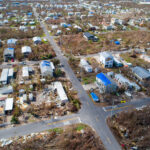The German unit of Allianz SE, Europe’s biggest insurer, sees no need to follow up on a cost-cutting program in its non-life business that has dragged on three years.
“We have achieved a lot; now it’s time to switch to a continuous cost discipline,” Markus Riess, head of Allianz Deutschland AG, said in an interview at its headquarters in Munich. “While I wouldn’t rule out another program to succeed the current one in property and casualty insurance, the focus won’t be on costs.” He didn’t say what the new target would be.
Germany is Allianz’s most important region in terms of customers, sales and profit contribution. It represented 27 percent of the group’s property and casualty premiums and 36 percent of life and health insurance at the end of last year. The German unit reported a 6.8 percent increase in sales to €29.9 billion [$40.5 billion) last year. Operating profit fell 21 percent to €1.6 billion [$2.168 billion] because of flood and hailstorm claims.
Allianz set a goal in 2011 to raise premiums at the German property and casualty division to €9.5 billion [$12.874 billion] by 2014 from €9 billion [$12.197 billion]. It plans to trim costs to 26 percent of premium income from 27.8 percent to improve the unit’s combined ratio, or claims and costs as a proportion of premiums, to 95 percent from 102.9 percent in 2011.
“We reached the target to reduce the expense ratio to 26 percent in the first quarter of this year already and I’m confident that we will be able to meet or even slightly exceed it this year,” said Riess, who has led the German unit since 2010. “We will also reach the combined ratio target if the claims situation remains as benign as it is at the moment.”
Calm Year
While last year’s floods and hailstorms cost insurers in Germany about €5.4 billion [$7.318 billion], this year’s most damaging natural disaster was a storm that hit the region around Dusseldorf and resulted in claims of about €650 million [$880 million], according to data compiled by Munich Re.
“As 2014 looks like a good year for sales, I also expect us to reach the premium target,” Riess said. One third of the premium increase is expected to come from additional sales and the rest from price effects, he said.
In life insurance, Allianz last year introduced policies in Germany with reduced guarantees to help counteract low interest rates.
“Policies with new guarantees including unit-linked products currently represent half of our new retail old-age provisioning business sold through our agency network,” Riess said. “We sold 15,000 policies of the new life insurance product in the first quarter and I expect this trend to further accelerate.”
Next CEO?
Riess, 48, declined to comment on whether he considers his job at Allianz Germany finished and would be ready to move on. He and Oliver Baete, 49, are among potential candidates to succeed Michael Diekmann, 59, as Allianz’s chief executive officer. Diekmann’s current contract, which could be extended, ends this year as well as those of five other members on Allianz’s 11-people management board. Riess is not a member of the board.
Allianz tends to renew contracts annually once an executive reaches 60. The insurer said in February that it expects the supervisory board to settle the leadership question in October.
“We have achieved a lot over the last years in a joint effort at Allianz Germany and while the most important projects are completed or close to completion, the process of improvement is a continuous one,” Riess said.
Topics Property Casualty Allianz Germany
Was this article valuable?
Here are more articles you may enjoy.


 North Carolina Adjuster and Son Charged With Embezzlement in Roof Jobs
North Carolina Adjuster and Son Charged With Embezzlement in Roof Jobs  4,800 Claims Handled by Unlicensed Adjusters in Florida After Irma, Lawsuit Says
4,800 Claims Handled by Unlicensed Adjusters in Florida After Irma, Lawsuit Says  Marsh McLennan Agency to Buy Fisher Brown Bottrell for About $316M
Marsh McLennan Agency to Buy Fisher Brown Bottrell for About $316M  Allstate Reports $731M in Q1 Pretax Catastrophe Losses
Allstate Reports $731M in Q1 Pretax Catastrophe Losses 

